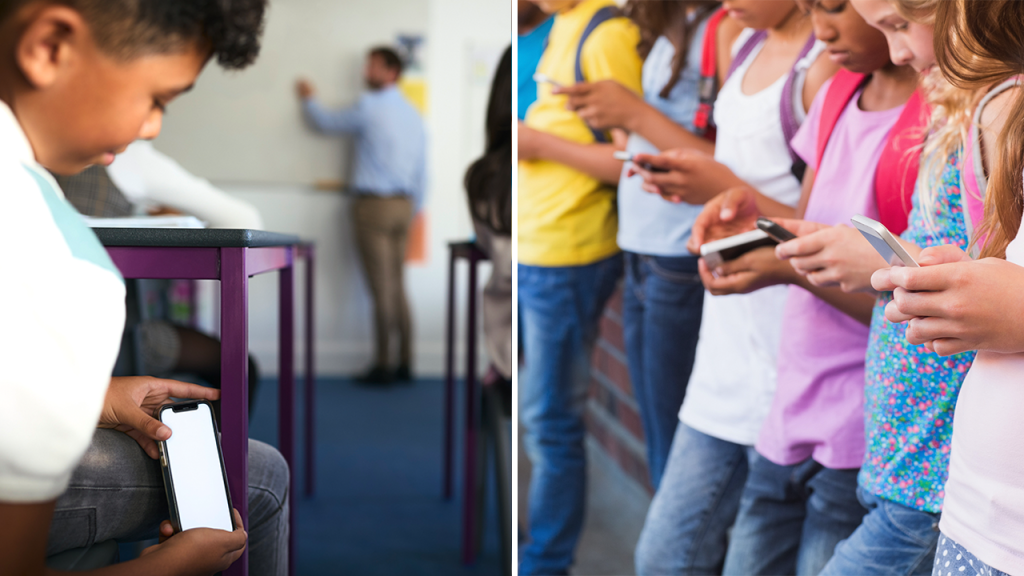Some U.S. states and school districts are implementing stricter protocols or bans on cellphone usage by students. Arizona is the latest state attempting to restrict usage, with the legislature arguing that a wider law is necessary. The state superintendent of public instruction for the Arizona Department of Education, Tom Horne, held a news conference to make the case for a state-wide cellphone ban in schools. At least 11 other U.S. states have passed laws or enacted policies that restrict students’ use of cellphones in schools. The Los Angeles Unified School District recently voted to ban students from using smartphones during the school day, becoming the largest district to adopt such a policy.
Other states such as Virginia and Connecticut are also taking steps to limit cellphone usage in schools. Virginia Governor Glenn Youngkin issued an executive order in July to bring cellphone-free education to Virginia schools. Connecticut Governor Ned Lamont and the State Board of Education released a report offering policy guidance for school districts to consider recommending the removal of cellphones from elementary and middle schools. The Flint Community Schools District in Michigan enacted a ban on cellphones in all school buildings in January. Some states have chosen to incentivize restriction by implementing programs such as cellphone storage pouches in Arkansas, Delaware, and Pennsylvania.
Experts and professionals have noted the negative effects of cellphone usage among children and teens. Dr. Willough Jenkins, a pediatric psychiatrist, stated that the amount of time spent on devices is impacting children’s engagement in other activities and creating a “crowding-out effect.” She also emphasized the importance of considering students who may need a device for medical reasons, such as those with autism spectrum diagnoses or medical conditions like diabetes. Some parents have expressed concerns about kids not having access to their phones in case of emergency situations where they need to reach their caregivers urgently.
While some students may use cellphones for school-related research or other beneficial purposes, others may be exposed to harmful content through social media. The use of phones during free periods like lunch and recess can also hinder socialization and impact social development. Lawmakers and schools are encouraged to consider these factors when implementing phone-banning policies. Despite the potential benefits of restricting cellphone usage during school hours, some argue that students should retain their phones for emergency purposes. It is essential to strike a balance between limiting distractions and ensuring students have access to their devices when needed.


